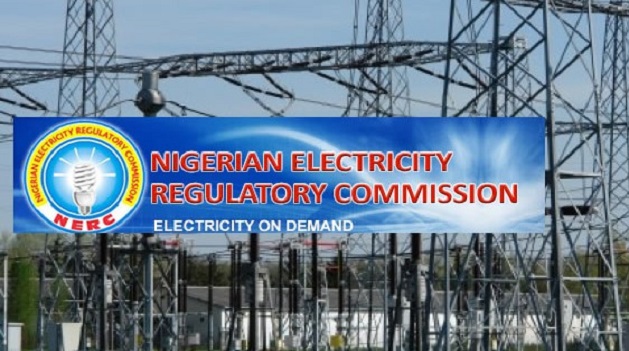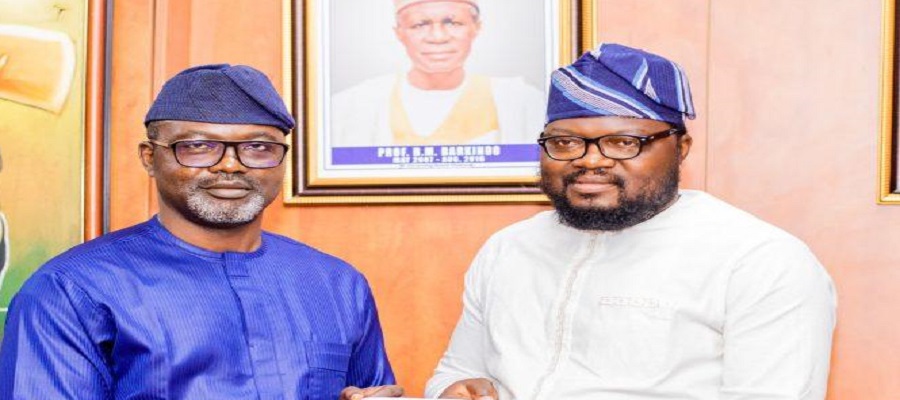News
CBN Gov, Others Risk Arrest over Alleged Financial Violations

House of Representatives may issue a bench warrant against Godwin Emiefele, governor of the Central Bank of Nigeria (CBN) and 53 other heads of government agencies for gross violation of the provisions of the Financial Regulatory council on rendition of audited account.

Godwin Emiefele, governor of CBN
This was contained in a report which also recommended past and present Chief Executive Officers of several government agencies and their Directors of Finance and Account should be handed to the Economic and Financial Crimes Commission (EFCC) for prosecution.
Non submission of audited account to the Office of the Auditor General of the Federation is considered an offence under the laws of the land.
Some others are to be sanctioned for delays in the submission of their audited accounts despite receiving money annually from the nation’s budget.
The 161- page report submitted to the House by its Committee on Public Accounts also listed all subsidiaries of the NNPC, including Kaduna Refining and Petrochemical Company, Pipeline and Products Marketing Company Limited, West Africa Gas Limited, Nigerian Gas Company, Warri Refining and Petrochemical Company, and National Petroleum Investment & Management Services (NAPIMS) as culpable.
Also included on the list are Federal Road Maintenance Agency (FERMA); Energy Commission of Nigeria (ECN); Revenue Mobilisation Allocation and Fiscal Commission (RMAFC); National Bureau of Statistics (NBS) and Niger Delta Power Holding Company (National Integrated Power Project).
The report also recommend that all accounting officers of the 54 government agencies that refused to appear before the House Committee to defend their positions should be issued warrant of arrest to compel their appearance within a week in line with Section 89 (d) of the 1999 Constitution of Nigeria (as amended).
The report was supposed to have been considered before the House embarked on its summer vacation but was stepped down along with others owing to controversy arising from the consideration of the Electoral Act amendment bill.
The report accused the management of Nigeria Maritime Administration and Safety Agency (NIMASA) of “recklessly and deliberately” refusing to render their audited accounts from 2005 – 2019) in violation of Section 85 (3) (b) of the 1999 Constitution and recommend that “all those in Office that were responsible should be disciplined and referral to the EFCC in line with Financial Regulation 3129 of 2009”.
Also to face the EFCC are all the Director-Generals and DFAs as well as the various External Auditors of the Nigeria Social Insurance Trust Fund (NSITF) from 2006 to 2019 for refusing to render the audited accounts for the last 13 years.
Also, Chief Executive Officer of Infrastructure Concession Regulatory Commission (ICRC); University of Calabar; Nigeria Communication Satellite (NigComSat); Federal University of Agriculture, Abeokuta (including the former Vice Chancellor); Federal Housing Authority, Federal Mortagage Bank of Nigeria among others are to face the EFCC for investigation and prosecution.
The report is the outcome of an investigation into the allegation of deliberate and reckless refusal by Non Treasury funded Ministries, Departments and Agencies (MDAs) to remit audited accounts covering 2014 – 2018 to the Auditor General for the Federation ordered by the House following a motion by the Deputy Chairman of Public Accounts Committee, Rep. Abdullahi Sa’ad Abdulkadir and 44 others.
The investigation was to identify the Chief Executive Officers of these agencies, whether in active service or retired, found to have violated the provisions of section 85(2)(3) and (4) of 1999 Nigeria Constitution and hold them liable for their actions.
It was to determine the procurement process of engagement of the External Auditors by these Non-Treasury Funded Agencies and whether they made up their professional ethics in turning in their reports for prompt remission to the Auditor General Office as at when due.
The report said over 300 MDAs were invited to appear before the committee, out of which about 54 refused to appear to defend their positions.
The report commended management of the National Examination Council (NECO), Raw Material Research and Development Council (RMRDC) and Nigeria Communication Commission (NCC) among others for rendering their audited account on schedule.
On the National Health Insurance Scheme, the report said “the NHIS has not rendered its audited accounts for past 13 years.”
News
LG Launches “Radio Optimism” Campaign to Spread “Life’s Good” Through Music

LG Electronics has launched a new brand campaign, “Radio Optimism,” designed to help strengthen meaningful human connections and spread optimism through shared musical experiences.

This initiative aligns with LG’s brand promise, “Life’s Good,” and addresses the growing challenge of forming genuine relationships in a technology-driven world.
The Radio Optimism campaign seeks to counteract the disconnection often felt in an era dominated by superficial interactions, such as likes and comments on social media. By harnessing the power of music, LG aims to foster deeper bonds among individuals, promoting a more fulfilling life.
“As technology advances, meaningful human connections become increasingly vital to enrich our lives. LG continues its commitment to bringing optimism into customers’ daily lives, staying true to our enduring brand promise of ‘Life’s Good,’” said Kim Hyo-eun, head of LG’s Brand Management Division.
This campaign reinforces LG’s commitment to creating enriching experiences in digital spaces where today’s consumers spend significant time. Building on this mission, LG has continuously engaged with younger audiences through participatory campaigns that bring the Life’s Good philosophy to life.
Last year’s “Optimism your feed” campaign leveraged social algorithms to foster positivity on social media. This new initiative specifically seeks to address the paradoxical disconnection in an era of hyper-connectivity.
“One of the most reliable predictors of happiness is having deep and meaningful relationships,” said Jean M. Twenge, Professor of Psychology at San Diego State University. “Yet today, many people are spending more time online and less time connecting in person. Social media in particular tends to create shallow relationships rather than the deep connections people need.
“It’s common for people to have hundreds of followers but no one to talk to in real life if they need support. We need to build more meaningful connections with those around us. That might turn around the pronounced decline in happiness that’s occurred over the last decade.”
A new global study* from LG on social connection reveals that 68 percent of people find it harder to make real friends, and a third reported having one or fewer meaningful connections in the past month, with 8 percent experiencing none at all.
Inspired by traditional radio’s unique way of connecting people through music and storytelling, the Radio Optimism campaign transforms this concept into an interactive platform where participants can create and send personalized songs to their loved ones.
Users can easily create new songs using AI-powered tools, which are thoroughly trained on a curated music dataset. These tools interpret user prompts to produce unique musical pieces and generate matching album art, providing an engaging and personalized experience. Once generated, these songs can be sent to recipients to deepen their connection and made available for others to discover worldwide.
According to the survey, nearly 9 in 10 respondents believe that meaningful connections lead to a more optimistic outlook on life. By providing a platform for individuals to express their feelings, this campaign aims to foster deeper connections and help individuals enrich their lives while spreading optimism in their own ways.
The campaign website is available in English and Spanish, with plans to support additional languages in the coming months to enable broader participation. The official website can be found at RadioOptimism.lg.com.
News
Nigeria’s Electricity Output Climbs 10.92% in Q1 2025, Boosted by Thermal Plants

Nigeria’s electricity generation rose by 10.92% in the first quarter of 2025, driven by improved operational capacity and better availability of thermal and hydropower plants supplying the national grid.

This is according to the latest report from the Nigerian Electricity Regulatory Commission (NERC) for Q1 2025.
Total energy generated stood at 10,304.47 gigawatt-hours (GWh), up from 9,289.95 GWh recorded in the previous quarter. The increase highlights stronger performance across multiple power plants, supported by improved grid dispatch conditions.
NERC noted that average hourly generation on the grid also grew by 13.39%, rising to 4,770.59 megawatt-hours per hour (MWh/h) from 4,207.41 MWh/h in Q4 2024—an increase of 563.18 MWh/h.
“The hourly generation and the total generation increased by 13.39% and 10.92% respectively in Q1 2025 compared to Q4 2024. This rise is linked to an increase in the cumulative available generation capacity of grid-connected plants,” the report stated.
A total of 19 power plants boosted their output during the quarter, contributing significantly to the overall rise in generation.
Thermal power plants were the main drivers of growth. Out of the 23 thermal plants connected to the grid, 16 recorded higher average hourly output compared to the previous quarter.
Top contributors included Delta_1, which added 157.58 MWh/h, followed by Geregu_2 (71.95 MWh/h), Egbin_1 (68.20 MWh/h), and Afam_2 (68.03 MWh/h).
Hydropower plants also supported the growth, though at a smaller scale. The five grid-connected hydro stations posted a combined increase of 54.93 MWh/h, marking a 4% improvement. Zungeru_1 led with a 23.55% rise, while Shiroro_1 and Kainji_1 grew by 12.21% and 4.80% respectively.
This first-quarter improvement reflects ongoing efforts to stabilize power supply through better plant maintenance, enhanced grid management, and more consistent dispatch across regions.
However, challenges such as fuel supply to plants, equipment reliability, and high operating costs continue to limit the full potential of Nigeria’s power generation capacity.
News
DBI, Miva Open University Partner to Advance Digital Innovation, Education

Digital Bridge Institute (DBI) and Miva Open University, Abuja, have signed a Memorandum of Understanding (MoU) to jointly promote digital technology and academic excellence in computer science and innovation.

Mr. David Daser, president/CEO, DBI, and Professor Tayo Arulogun, vice chancellor, Miva Open University.
DBI, a Federal Government-owned ICT training institute with headquarters in Abuja and campuses across Nigeria’s six geo-political zones, hosted the signing ceremony at its headquarters.
The MoU marks a significant step in formalizing and strengthening the existing relationship between the two institutions.
Signing on behalf of their institutions were
Speaking during the event, Mr. Daser praised Professor Arulogun’s leadership and commitment to academic development, which he said made the partnership possible. He emphasized that unlike many MoUs that remain inactive, this collaboration is set to deliver tangible results.
“We value this partnership and are confident it will meaningfully contribute to Nigeria’s education sector. DBI is fully prepared to implement the agreement and drive an impact across our campuses in Enugu, Abuja, Kano, Lagos, Asaba, and Yola,” Daser said.
He added that the collaboration would strengthen DBI’s National Innovation Diploma (NID) program and other initiatives through shared resources and new opportunities.
Professor Arulogun, in his remarks, highlighted the need for greater collaboration among Nigerian universities, criticizing the prevalent “do-it-alone syndrome.”
“Many institutions prefer to operate in silos, but collaboration is key. Pooling resources and working together will enhance capacity and academic output,” he stated. “With this partnership, we are ready to hit the ground running from student exchange to joint innovation projects like hackathons.”
He noted that hackathons provide platforms for discovering hidden talents and fostering innovation, and Miva is eager to integrate such activities into its academic programs.
Mr. Emeka Nzeih, head of Learning and Development, DBI, outlined the partnership’s key focus areas: student internships, real-world project collaborations, joint research in fields like AI, robotics, and cybersecurity, and shared access to DBI’s ICT labs and equipment for Miva’s students and faculty.
According to Nzeih, the initiative aims to enhance practical learning, foster innovation, and build capacity through collaborative training, research, and mentorship.

 Telecom2 days ago
Telecom2 days agoMTN Nigeria Debuts Game-Changing CPaaS Platform at NextNow Forum

 Telecom3 days ago
Telecom3 days agoNCC Approves MTN, 9Mobile Roaming Collaboration Deal

 E-Financial2 days ago
E-Financial2 days agoNAICOM Issues New Licenses to SanlamAllianz Life, General Insurance

 News2 days ago
News2 days agoAMCON Confirms ₦100Bn Sale of Ibadan DisCo Amid Legal Disputes

 E-Financial2 days ago
E-Financial2 days agoGTCO to Become First Nigerian Bank to List on London Stock Exchange

 E-Business2 days ago
E-Business2 days agoDomain of Deception as Attackers Deploy Spyware Under Guise of Legal Threats

 E-Financial3 days ago
E-Financial3 days agoWorld Bank Approves Extra $65m for Nigeria’s SPESSE

 E-Financial3 days ago
E-Financial3 days agoEcobank Taps Google Cloud to Deepen Financial Inclusion



























